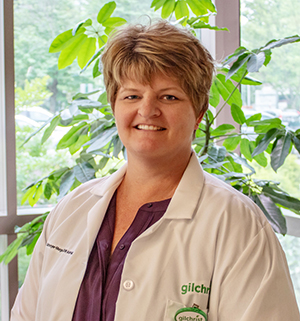Is Palliative Care Right for You?

Is Palliative Care right for you? What are your goals and priorities? Do you have fears or worries for the future? What is your understanding of where you are in your illness? What outcomes are unacceptable to you? What would a good day look like? What is worth fighting for?
These are questions that you may be asked, should you engage in a conversation with a palliative care specialist. Our palliative care specialists at Gilchrist will take the time to help you understand your illness and the burden and benefits of treatment options. They will also assist in helping you to identify that one person who would make medical care decision for you, in the event that you find yourself unable.
All too often, palliative care is compared to hospice care. While there are some aspects of palliative care and hospice care that are similar, they are very different.
Hospice Care
Hospice is a philosophy of care designed to give supportive care to people in the final phase of a terminal illness, with a focus on comfort and quality of life, rather than cure. The goal of hospice care is to enable patients to be comfortable and free of pain so that they live each day as fully as possible.
Hospice care is:
- Initiated when the expected death is within 6 months
- A Medicare-paid benefit
- Provided for a qualifying terminal illness
Palliative Care
Palliative care is specialized medical care for people with serious, chronic, life-limiting illness. Palliative care is focused on providing relief from the symptoms and stress of that illness. The goal is to improve the quality of life for both the patient and the family.
Palliative care is:
- Initiated as early as the time of diagnosis and is ongoing
- A medical specialty, often performed in consultation
- Compatible with continuing to receive curative treatments
Palliative care specialists continue to educate and work with their communities to bring a better understanding of the services and care available, while removing the myths and stigma surrounding death and end-of-life care.
We will all be faced with our own death and mortality, and the important thing to remember is that we can choose how to live our life and how our life’s end will be remembered. A palliative care specialist can help you and your loved one find ways to cope with your illness while finding meaningful hope and purpose to your life.
Learn more about Gilchrist’s Palliative Care service, here.






